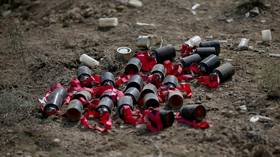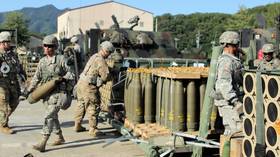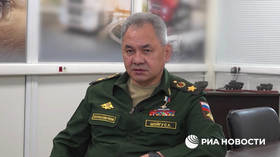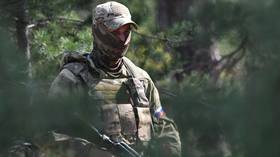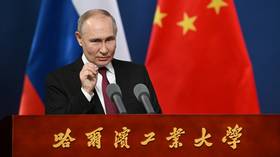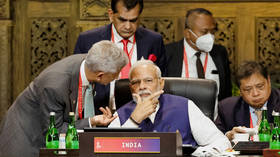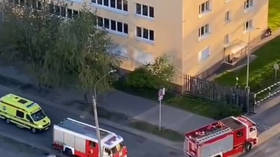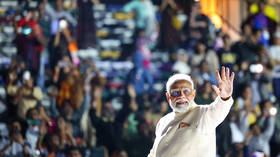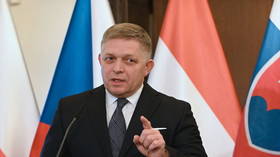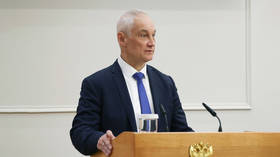Officials downplay impact of US cluster bombs on Ukraine frontline – NYT
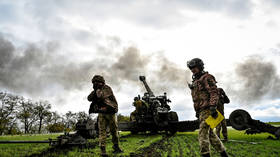
The controversial cluster munitions which Washington has recently provided to Kiev will not have a significant impact on the situation on the conflict front lines in the short run, the New York Times reported on Friday, citing former US officials and military analysts.
The report contradicts claims from multiple officials in Kiev that the weapons, which are banned in over 100 counties over dangers they represent to civilians, would be a 'game changer' in the conflict with Russia.
However the experts quoted by the NYT believe that the ammunition will not "immediately help" Ukraine’s offensive and will only allow Kiev’s troops to hold out, as they face a drastic ammunition shortage.
“The scale of effect will be modest,” Jack Watling, a senior research fellow at the Royal United Services Institute (RUSI) in London, told the paper, adding that the real impact will only be seen when “Ukraine has significantly more ammo.” Colin Kahl, the US undersecretary of defense for policy, said the cluster bombs will only allow Ukraine to “sustain the artillery fight for the foreseeable future.”
According to the analysts, the Ukrainian military is likely to use cluster munitions to sustain the high rate of artillery fire as they revert from Western combined-arms tactics to Soviet-style heavy artillery shelling of Russian positions.
“It looks like they’re back to an artillery duel,” Amael Kotlarski of the defense intelligence company Janes told the Times.
Western advisers have hailed synchronized attacks by infantry, tanks, and artillery as superior tactics to the artillery-centered approach that both Russia and Ukraine had used before. Ukrainian commanders, however, apparently became disillusioned with these tactics after their troops suffered heavy losses in unsuccessful attempts to penetrate Russian defenses over the past month, the newspaper said.
This development did not sit well with senior US officials, who have “privately expressed frustration” in recent weeks. The paper also described the artillery duel strategy as less efficient and more costly.
The Biden administration still hopes the nine Ukrainian brigades trained by the US and its allies will stick to the combined arms tactics and show that “the American way of warfare” is superior, according to the Times.
Kahl added that the Ukrainians are uncomfortable with Western tactics. “It pushes them out of their comfort zone,” and “it is requiring them to fight in different ways,” he said. The Pentagon official noted that the Ukrainian offensive has been “slower than we had hoped,” but maintained that “the Ukrainians have a lot of combat power left.”
Both American and Ukrainian military officials declined to elaborate on how exactly Kiev will use the US cluster munitions. This type of ordnance has been banned by more than 110 nations under a UN convention due to the danger they pose to civilians.
Cluster munitions scatter small bomblets that can fail to detonate and end up injuring or killing civilians for years, long after a conflict has ended. The munitions the US is supplying to Ukraine are 155-millimeter artillery shells fired by howitzers that release 72 small grenades once they reach their targets.
The decision to supply the controversial ordnance has been criticized by the UN as well as America’s own allies, including the UK, Canada, and Spain. Austria, which is not a NATO member, has expressed concerns as well.
The Times claimed that both Russia and Ukraine have already used these munitions during the conflict, adding that Ukrainian President Vladimir Zelensky specifically asked for this type of ammunition to breach Russian defenses.
Moscow slammed the US move, saying it will not affect the situation on the battlefield but will have “dire consequences” for civilians. Russian Defense Minister Sergey Shoigu has warned that Russia will “be compelled to use equivalent weapons” in response.
